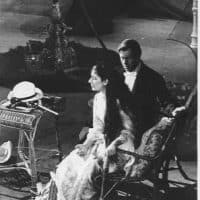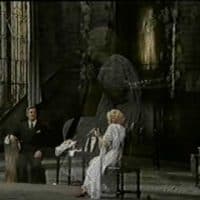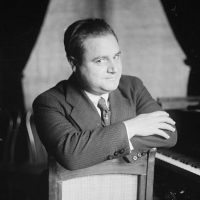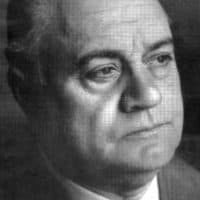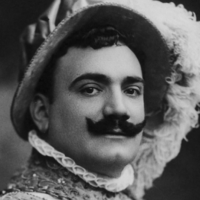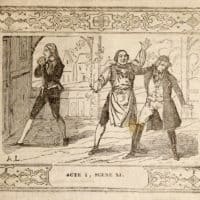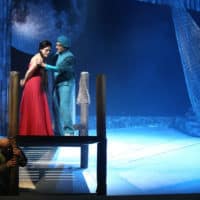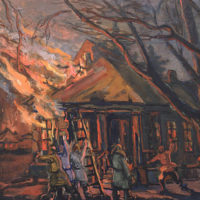 Renata Scotto was born on February 24th, 1934, in the Italian town of Savona. Renata Scotto made her debut in 1953 as Violetta at Savona and then Milan. She was a virtuosic soprano lirico-leggero gifted with a velvet timbre and insuperable coloratura, supported by a good technique, like those of Saraceni, Sayao and Noni. She sang Adina, Amina, Mimì and Donna Elvira during the first decade of her career. From 1965 onwards, her repertoire took on other roles, Verdi (Lombardi, Vespri siciliani,Trovatore, Macbeth and Ballo in Maschera), Puccini(Tosca, Butterfly and Trittico) and the young school (Adriana Lecouvreur, Fedora and Gioconda).
Renata Scotto was born on February 24th, 1934, in the Italian town of Savona. Renata Scotto made her debut in 1953 as Violetta at Savona and then Milan. She was a virtuosic soprano lirico-leggero gifted with a velvet timbre and insuperable coloratura, supported by a good technique, like those of Saraceni, Sayao and Noni. She sang Adina, Amina, Mimì and Donna Elvira during the first decade of her career. From 1965 onwards, her repertoire took on other roles, Verdi (Lombardi, Vespri siciliani,Trovatore, Macbeth and Ballo in Maschera), Puccini(Tosca, Butterfly and Trittico) and the young school (Adriana Lecouvreur, Fedora and Gioconda).
The presence of a soprano lirico-leggero within dramatic contexts should not surprise. It was a general phenomenon and practice in mid 1900. The likes of Scotto, Freni, Sutherland and Chiara embraced the dramatic repertoire, mainly due to the soprani drammatici’s precocious retirement and objective dearth. It was also a burning desire for lyrical sopranos to trace the road of and even imitate the Greek diva, Maria Callas, who possessed a multiple voice: leggera, lirica and drammatica. Renata Scotto first imitated the lesson imparted by Callas and then absorbed it in a brand new personality.
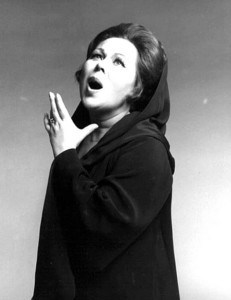 For Renata Scotto after twenty five years from the debut, Adina became Anna Bolena, Gilda became the Duchess Elena and Leonora, Violetta became Adriana Lecouvreur and Amina became Norma. She was one of those rarest voices (two or three at the most) who overcame modern singing without falling through. What are the reasons? The technique had made use of shrewdness and expediency. The timbre had never been vulgar and acquired great, natural pulp. The distance covered from the days of Gilda to those of the Duchess Elena was enormous. All that Renata lost in freshness she gained in a fraseggio which was of undisputed authority, the authority which belongs only to the greatest.
For Renata Scotto after twenty five years from the debut, Adina became Anna Bolena, Gilda became the Duchess Elena and Leonora, Violetta became Adriana Lecouvreur and Amina became Norma. She was one of those rarest voices (two or three at the most) who overcame modern singing without falling through. What are the reasons? The technique had made use of shrewdness and expediency. The timbre had never been vulgar and acquired great, natural pulp. The distance covered from the days of Gilda to those of the Duchess Elena was enormous. All that Renata lost in freshness she gained in a fraseggio which was of undisputed authority, the authority which belongs only to the greatest.
Notwithstanding turning to a dramatic repertoire, Renata maintained her piani and pianissimi of great suggestion and most intense expressiveness. Her delicious coloratura did not altogether abandon her as heard in the amiable bolero Mercè, dilette amiche from act IV of I Vespri siciliani. She became one of the great soprano voices in the international arena of post-war years, founded on a vocal emission of great purity and exemplary coloratura. She was Toti Dal Monte’s heiress. Young and aspiring lyrical sopranos should really look at Scotto and Freni to learn of how to develop their voices and accept also a great lesson in vocality.
In 2002, Renata retired from the stage. She currently works as an opera director and vocal teacher.
